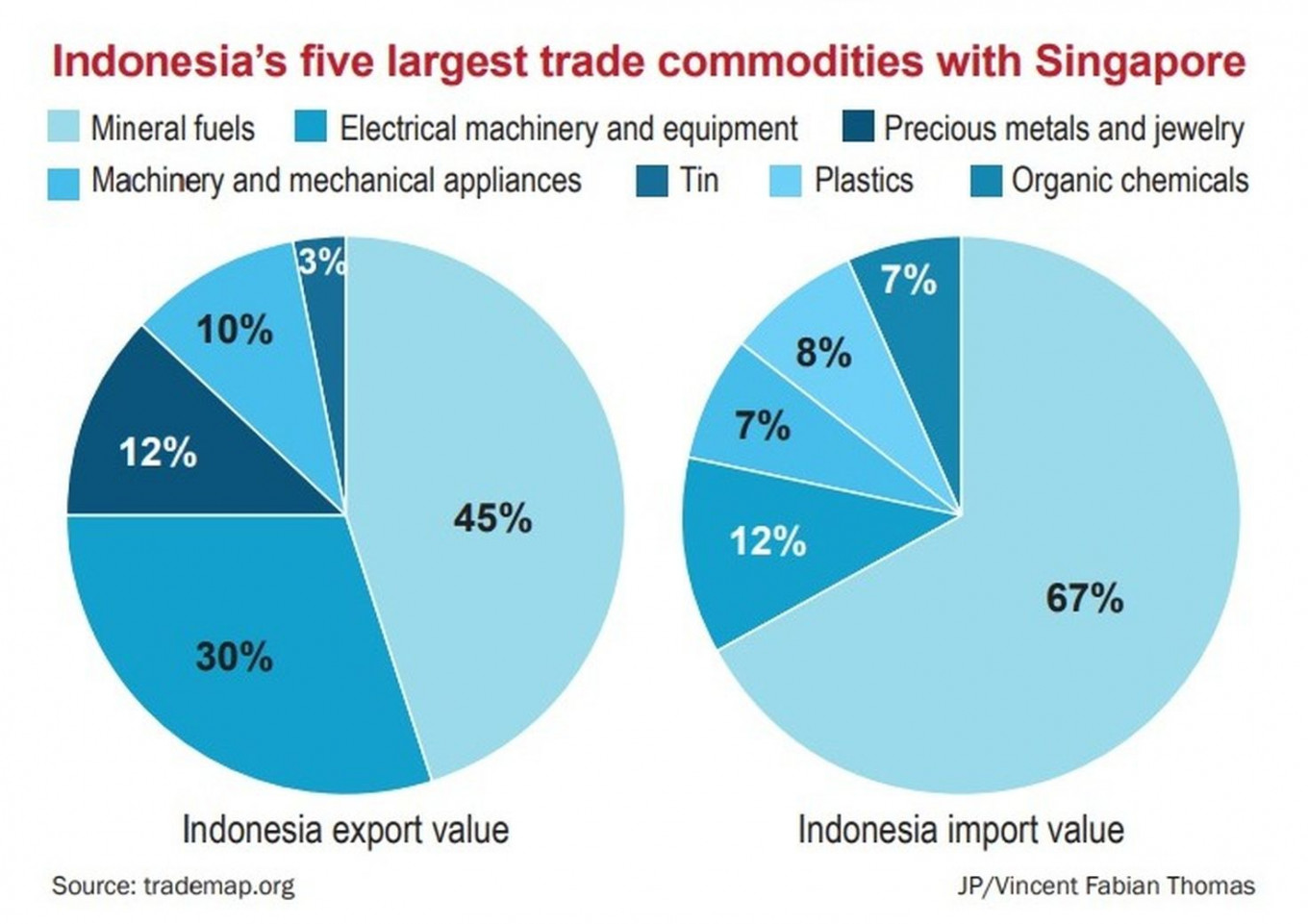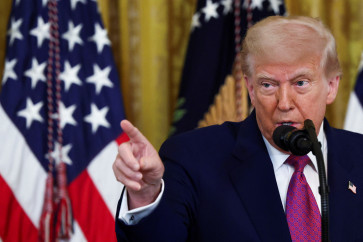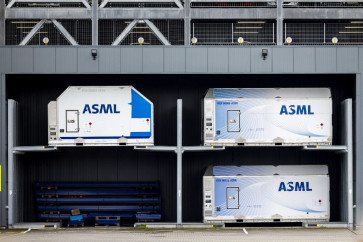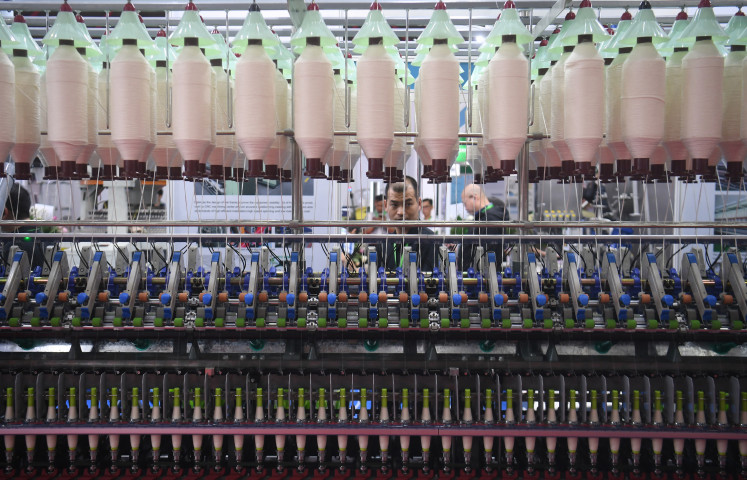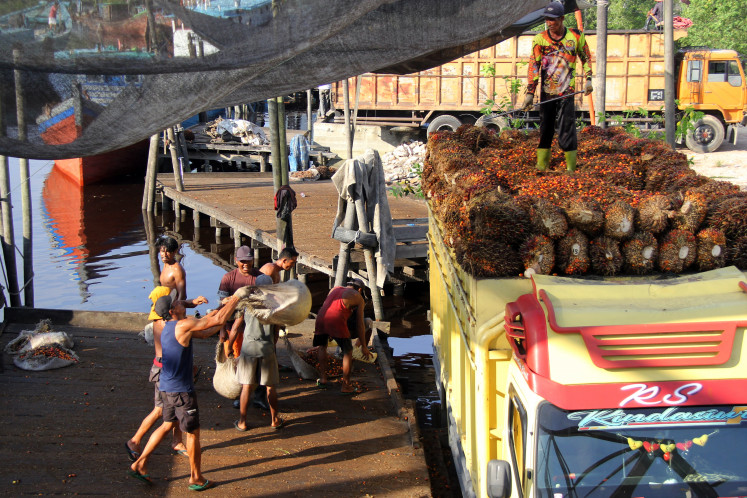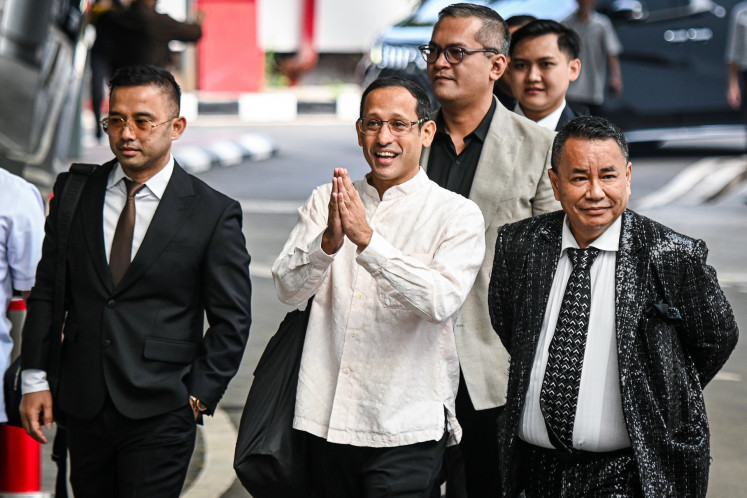Popular Reads
Top Results
Can't find what you're looking for?
View all search resultsPopular Reads
Top Results
Can't find what you're looking for?
View all search results2024 election won't affect IKN, Jokowi tells investors
Sales pitch follows apparent concessions to Singapore.
Change text size
Gift Premium Articles
to Anyone

No matter who wins in next year’s general elections, the Nusantara capital city (IKN) project will continue apace and offer peace of mind for would-be investors, President Joko “Jokowi” Widodo promised an audience of Singaporean investors on Wednesday, in his latest attempt to lure foreign funds from the neighboring island state.
The ambitious relocation of Indonesia’s capital has faced multiple hurdles including in financing, owing partly to current global economic headwinds and the fact that a completely new government could be sworn in next year.
But the Indonesian government, Jokowi reassured, was committed to ensuring the success of the capital city project, with basic infrastructure scheduled for completion next year, guaranteed in part by allocations from state coffers.
With only one year left of his administration, Jokowi has sought to pull out all the stops to lure foreign investments, including by issuing regulations described by the state as providing “the maximum possible amount of incentives” in the form of tax holidays and decades-long permits.
Singapore, already Indonesia’s largest source of foreign direct investment, has been earmarked by Coordinating Maritime Affairs and Investment Minister Luhut Pandjaitan as a key strategic partner for the development of the Rp 466 trillion (US$32.6 billion) project, despite the neighbor’s previous hesitancy to commit to anything beyond pledges.
In March, Jokowi met with Singaporean Prime Minister Lee Hsien Loong for a lengthy discussion on the IKN project, resulting in Lee’s promise for knowledge-sharing and letters of intent (LoI) from private companies – but short of any actual deals. Then, at a tour of the Nusantara site last week by a 130-strong Singaporean business delegation, Luhut urged that previous pledges be quickly followed up.

This time around, Jokowi’s pitch included quips about the 2024 presidential election, if only to reassure the hundreds of entrepreneurs at Singapore’s Ecosperity Week forum of the mainline project’s continuity and success.
“Whoever will lead Indonesia will be focused on turning this magnificent country into a powerhouse and a giant of Asia. [...] Everything will be fine. No need to worry. Your investment in Indonesia will continue to be safe,” he said.
Financing woes
With Nusantara still lacking much-needed funding, questions have arisen about whether the next administration would commit to continuing the project, leaving aspiring investors unsure of the nascent city’s future. Officials from the ruling party have suggested in private conversations that the President’s legacy could still peter out after he steps down.
But Jokowi has on multiple occasions insisted that the Capital City Law (UU IKN) passed late last year should be enough reassurance that the project will not be abandoned by any future leaders, while other members of the ruling coalition have claimed to have included it in the long-term national development program.
He has also defended his meddling in the search for his successor, despite growing criticism.
“Then there is another question about incentives. Easy, lah,” the President joked. “I was also a businessman. Don’t worry; we have prepared fiscal incentives.”
Three-hundred investment packages totaling $2.6 billion have been reserved for the private sector, he continued, which is specifically meant for housing, transportation, energy and technology. The brand-new city, the President explained, would be Indonesia’s first carbon-neutral city, owing to its total area being 65 percent forest cover.
“We have very big potential in new and renewable energy, with nearly 434,000 megawatts and 434 gigawatts [allocated, respectively], encompassing geothermal, wind, solar and hydro [power],” he affirmed.
“Ladies and gentlemen, what else are you waiting for?”
Addressing concerns about Nusantara becoming a ghost city, Jokowi suggested that Indonesia as the world’s fourth most populous city would have no problem in populating a “world-class city”.
The sales pitch follows the government’s change in tack on several policy considerations, which conveniently places Singapore among the potential benefactors.
Last month, the President lifted a ban upheld by two previous administrations on sea sand exports, a commodity of high demand in Singapore used for land reclamation.
The new regulation has been criticized by former government officials and environmentalists for its potential to degrade Indonesia’s biodiverse ecosystem.
Other observers have described Jokowi’s decision as a quid pro quo for the recent signing of a trio of bilateral agreements comprising a defense pact, an extradition treaty and a revised deal on airspace management.
More recently, a close aide of Jokowi openly conveyed Singapore’s wishes for the Indonesian government to export electricity to the city-state to help wean it off fossil fuels – a policy that Jakarta previously knocked for not offering any added value to Indonesian energy endeavors.
It remains unclear whether there are any trade-offs between the IKN project and the sand and electricity exports.
Tour-de-force
The Ecosperity Week, hosted by the Temasek Foundation, is an annual three-day forum where global business leaders, policymakers, investors and civil society groups from across industries mull over solutions for net-zero emissions and redirecting financing to climate action.
Jokowi, accompanied by First Lady Iriana, is also scheduled to fly to nearby Malaysia on Wednesday evening to meet with Malaysian Prime Minister Anwar Ibrahim to discuss unfinished negotiations, including on land and maritime borders, as well as migrant labor protections.
Previously, Anwar met Jokowi at the Bogor Palace in West Java in January for his maiden state visit, where the two leaders discussed Nusantara, land demarcation and maritime border delimitation. At the event, Anwar also handed over 11 LoIs from 10 Malaysian companies to signal possible investments.

